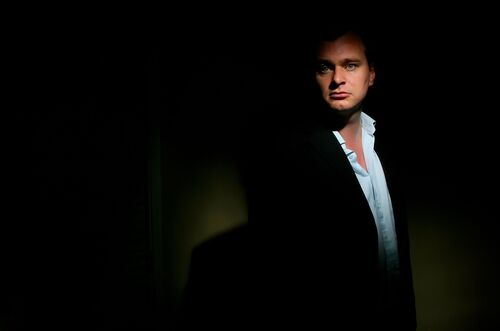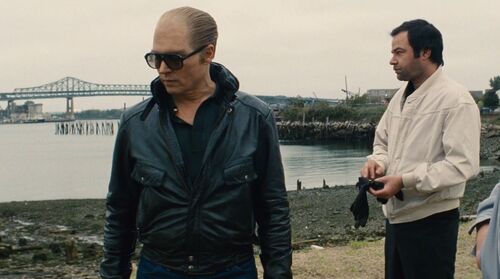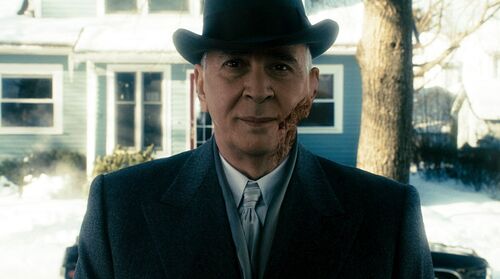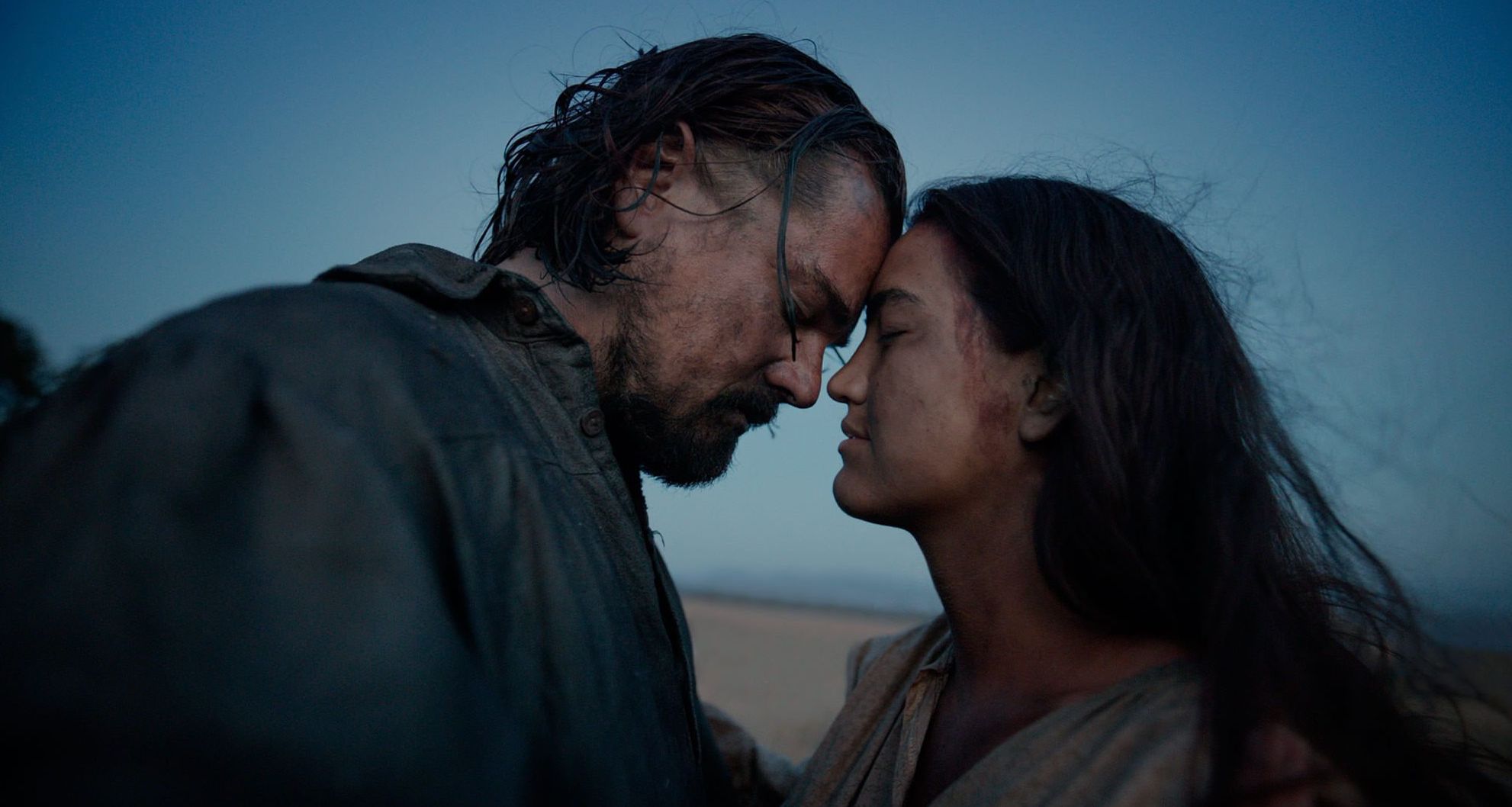
The Revenant: Importance of a Difficult Film
 A difficult film is what exactly, some may wonder. The importance of a difficult film very less minds comprehend. There are some cinema-goers who tend to move on to live a life of zero bothersome when it pertains to films—offering no care, not one iota to its sub-text, its very purpose, and even as to why one has failed to deliver what it was supposed to provide. I wonder why.
A difficult film is what exactly, some may wonder. The importance of a difficult film very less minds comprehend. There are some cinema-goers who tend to move on to live a life of zero bothersome when it pertains to films—offering no care, not one iota to its sub-text, its very purpose, and even as to why one has failed to deliver what it was supposed to provide. I wonder why.
The importance of a difficult film, which I’ve come to comprehend being the most essential work of art. You might say, all films are difficult to make. That’s true, but it also depends on the person behind the film. There are some who enjoy the making of the film so enormously that, for him or her, the onus may feel far less arduous. However, construction of the structure of the script, first, on the blank pages by itself is a strenuous process, and as well as the direction of the script; then being certain as the director, so your actors that are involved, including the crew, all remain on the same page, cognizant throughout. No soul writes a script to be dull, nor the soul, who ends up directing. But, if one isn’t focused, it may end up destroying the work of art—the structure that’s unique; fragile, which demands absolute attention from its maker.
The significance of a difficult film is a cinema that’s hard to comprehend; for some to condone and to even accept. Difficult cinema, just as the cinema of the non-difficult, is essential. Non-difficult cinema is entitled to proffer, at times, messages to the viewer. The existence of it I certainly deem a necessity in our society. Though, cinema, whether difficult or not, when it eschews realism, when the script necessarily demands it, has fallen flat and will continue to bore the viewer.
Difficult cinema brings to mind writer/director Christopher Nolan’s Memento and Inception. The Matrix, written and directed by the Wachowski siblings; Schindler’s List by Steven Spielberg; The Pianist by Roman Polanski; Manhunter and Heat from Michael Mann; Sergio Leone’s Once Upon A Time in the West; 2001: A Space Odyssey from Stanley Kubrick, and almost all of Andrei Tarkovsky films. Though, when it comes to the cinema of Tarkovsky, Solaris, Stalker and The Mirror are definitely the astute titles that should be deemed difficult cinema from the rest of his art. Contemporary filmmakers, who tackle themselves against the rage of the difficult cinema, are Paul Thomas Anderson, Denis Villeneuve and Nicolas Winding Refn.
Cinema of Terrence Malick has also entertained thoughts of mine; his oeuvre, it's as if it consists of paintings. Malick proffers the importance of the obvious frame of cinema with absolute poetry. His films, such as Badlands, Days of Heaven, The Thin Red Line and, of course, his magnum opus The Tree of Life, challenges the viewer. Malick likes to demand his audience to comprehend cinema of difficulty, though through the majestic frame, he so poetically and dearly cherishes.
Difficult cinema tends to present itself in allegories; often parables and as well as signs in order to be understood and to convey its infra-narrative. If such a work of art is left alone, never to be bothered by the viewer again, in my opinion, is considered a waste of great art. Tarkovsky's The Mirror comes to mind again when it comes to perceiving symbolism, such as the fire, wind, and silences. Early works of M.Night Shyamalan are samples of symbolism that the language of the auteur offers the viewer, via the support of the frame of cinema. Some may grasp the meanings, some may not. Therefore, such cinema is deemed difficult, yet important.
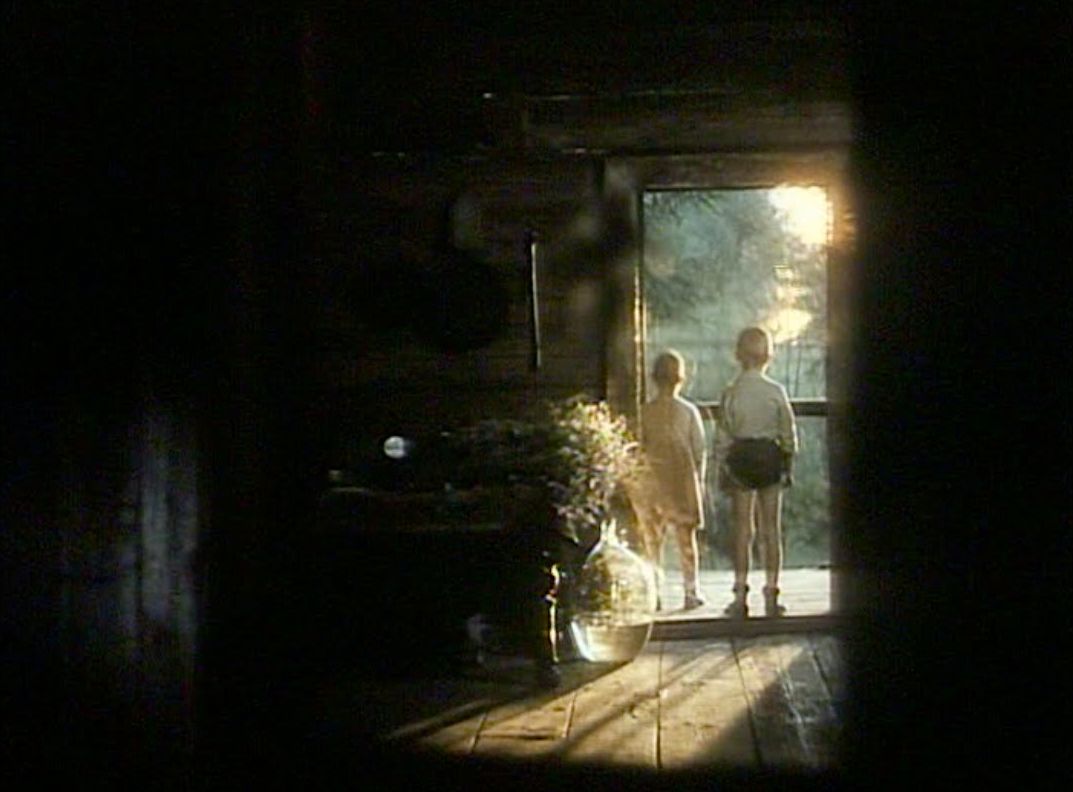
There are two ways to grasp the gravity of the difficult cinema. First, when it’s a film that is considered difficult by the viewers and as well as by some of the film critics. Such film is either lengthy when viewed and/or difficult to follow due to its images, and violence mentioned before the camera. But such film, in my opinion, isn't necessarily about the weakness of the end product, but the weakness of the viewer, who either likes to eschew such method or perhaps dares not to look at the real world. And then there's the way of making a film that's extremely arduous, where a filmmaker forces himself, his cast, the entire crew, to capture the utter realism. It’s almost as if documenting with a camera the passing of the true events. I, personally, venerate both methods, whether to see a difficult film and/or make a film such as Francis Ford Coppola's Apocalypse Now. Or, a film like the recent one made by Alejandro Gonzalez Inarritu, The Revenant.
I've been meaning to share my thoughts on the difficult cinema for some time. The Tree of Life is an example, as well as Refn's Bronson and Only God Forgives. Villeneuve's Enemy, Incendies, Prisoners and Sicario I deem difficult, for as the aforementioned titles, they're in the process of conveying more than the image. Films like these exist mainly to educate the viewer, not of the surface of the world they live in; it informs them of the very world's true nature. Shyamalan's Unbreakable, Signs, The Village and as well as Lady In The Water, respectively, are works that are in the process of deciphering consequences of human nature, politics, relationships, and one major aspect of everyone's daily lives: faith. In other words, these films of his are conversations with the viewers. But making The Sixth Sense, Shyamalan has used cinema more as the platform to convey to the masses of his directorial bravura. With titles that I've mentioned already, he has used cinema more straightforwardly, acting not as the director, but an absolute artist—prophet. Tarkovsky is the prime example of an artist-prophet as, throughout his career, he viewed art as the container, concerning himself, also his work, with spiritualism, symbolism—eye-open-ism. Tarkovsky’s films, most importantly Solaris and The Mirror, have taught both Shyamalan and Christopher Nolan of scene-discipline. They may deny this, but it's noticeable through their work.
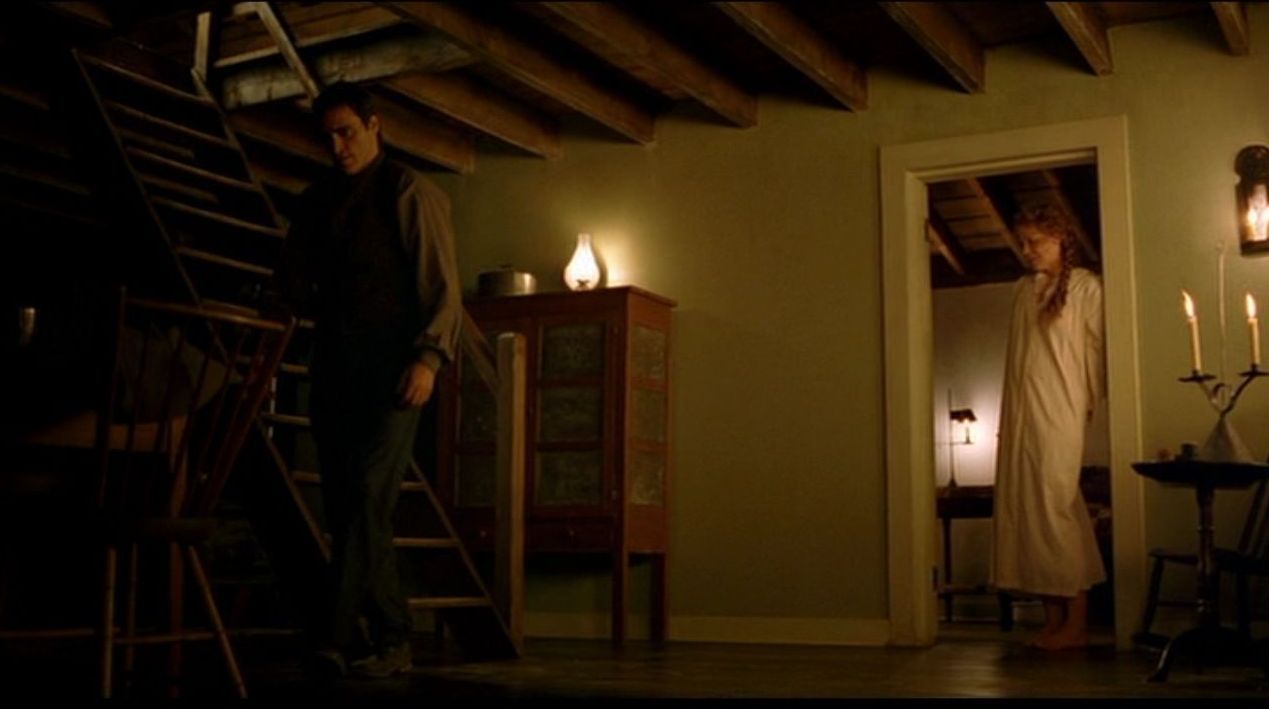
When it comes to The Revenant, it's about its gravity due to the way it is made; the harsh places and in uncomfortable conditions, where the actors had to perform. I'm also aware that it is long and has been labeled by some as gruesome. To convey the point of a difficult film like The Revenant, brings to mind what Tarkovsky once said, “some sort of pressure must exist; the artist exists because the world is not perfect. Art would be useless if the world were perfect, as man wouldn’t look for harmony, but would simply live in it. Art is born out of an ill-designed world.”
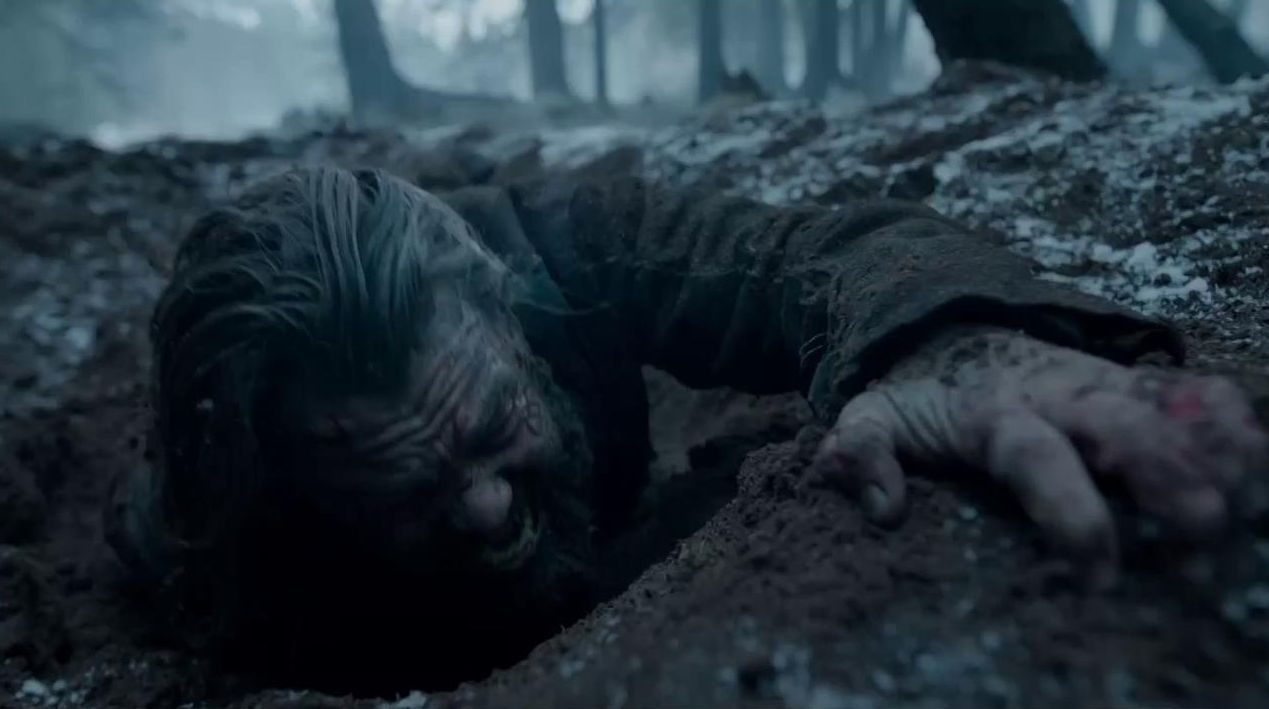
The Revenant, and the book the film is based upon, being the products of the ill-designed world, but it's this ill-designed world of ours some fail to understand or simply choose not to. Whether or not one understands the true nature of the world, its harsh realities, and what man is capable of, products of the ill-designed world such as The Revenant will continue to flourish in various forms. As cold as the man can be, the humanity can also be warm, focused and quite concerned of the surroundings. The Road, a novel written by Cormac McCarthy, set in a post-apocalyptic world, provides an idea, what if the world is on the verge of being, finally, free of the human, and left behind for the only souls that are thirsting for blood of the other. A difficult film can be seen as the absolute window of reality and result of which is The Road, a film directed by John Hillcoat.
Alejandro's The Revenant will be difficult to look at as much as it's magnificently shot and passionately performed. But, allow its harshness to, not make us look away from, but to understanding its importance. Man is utmost perfection, yet imperfect creation of perhaps the God, nature, weather, soil of the world. The man has earned the right to continue to walk over this earth and defeat its very realities full of burdens, and no matter what nature brings from the opposite direction. "I ain't afraid to die anymore. I've done it already," is perhaps the metaphor, and to decipher it, it pertains to not just the character of Hugh Glass limned in The Revenant by Leonardo DiCaprio, but to man—the human. Our kind died before and we are not afraid to die anymore.
